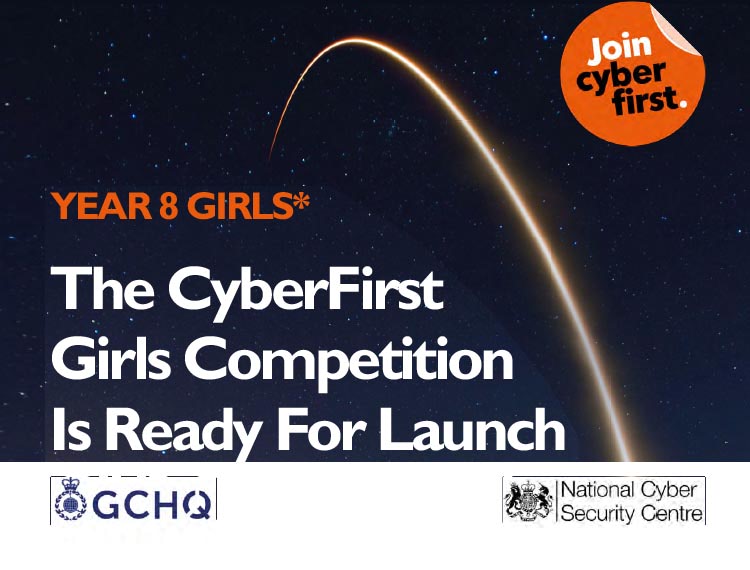Free courses underline GCHQ’s commitment to tackling the gender divide #CyberFirst

TECH savvy students across the UK have flocked to GCHQ sessions to inspire future cyber security experts – but this week the drive is particularly focused on inspiring girls to join the talent pipeline.
 Sheila Flavell, COO at FDM group and Chair of the Advisory board for the IoC:
Sheila Flavell, COO at FDM group and Chair of the Advisory board for the IoC:
“This is a very welcome initiative which will give hundreds of women the opportunity to learn more about a career in the cybersecurity industry.
“All too often, women who have taken time out to care for friends or family members have found themselves struggling to get back into work. Likewise, not enough young women are entering the technology industry, missing out on valuable career opportunities and creating an imbalanced workforce.
“These free courses underline GCHQ’s commitment to tackling the gender divide and offering accessible opportunities to people from all backgrounds. Accessibility is key, it’s impossible to build a truly diverse workforce of the future without working hard to bring in people from all walks of life.”
The National Cyber Security Centre (NCSC) has this week (15 Jan) announced a 300 per cent growth in young people taking part in their CyberFirst courses since launching in 2016.
The number of courses offered has increased to meet the rising demands of a future generation engaging with the cyber security profession.
The broad CyberFirst programme offers a range of courses, competitions and student bursaries for 11-to-17 year olds.
But this week the organisation is appealing to girls aged 12 and 13 in Year 8, S2 or Year 9 (Northern Ireland) to take part in an exciting competition specifically for young women, because just 11 per cent of the global cyber workforce is female.
Teams of girls have until Monday 21 January to register in time for the start of the CyberFirst Girls competition, which will see them pit their cyber wits against one another in a head-scratching set of online challenges.
Chris Ensor, NCSC Deputy Director for Skills and Growth, said:
“Trebling the number of young people taking part on CyberFirst courses is an encouraging start however women only make a small proportion of the global cyber workforce and throughout GCHQ and the NCSC we are looking to address the imbalance.
“Ensuring the inquisitive instincts of young people to find out how things work are maintained is hugely important.
“In the first two editions of the CyberFirst Girls competition we have seen how much entrants engage with the challenges we set and this year’s competition is due to be bigger and just as cryptic.”
As an added incentive to all the girls competing in the competition, the NCSC will be offering around 600 free places on specially commissioned four day CyberFirst Defenders courses in April and May 2019. These courses will be ‘all girls’ and a mix of residential and non-residential at locations across the UK.
Participants can enter in teams of up to four, along with a teacher/school mentor who will act as a guardian. The competition has two stages – a week long online phase in January and a finals day in Edinburgh in March 2019.
2018 CyberFirst Girls Final
Over the past two years, 12,500 girls in schools across the UK have participated in the NCSC’s CyberFirst Girls competition of problem-solving and code cracking challenges to crown the UK’s most cyber-capable young women.
“I really enjoyed how the competition story fitted together and was set out like a realistic cyber attack. The challenges covered skills in computing you wouldn’t ordinarily come across at school.” Odette, a school student from Gloucestershire
“The competition taught me and my team-mates a lot and I think I’d now like to do computing for GCSEs.” Anna-Rose, a school student from Armagh, Northern Ireland
“I never would have entered the competition because it wasn’t something I was interested in, but then I did it and realised how vast cyber security is and all the different things you can do with that knowledge.” Neve, a school student from Kent
The online phase of the competition will see each team attempt to complete a series of challenges split into four categories: cryptography, cyber security, logic and coding and networking. The top 10 teams will move onto compete in a face-to-face Grand Final in Edinburgh in March 2019.
Led and inspired by the National Cyber Security Centre (a part of GCHQ), CyberFirst is a programme of opportunities and support helping young people explore their passion for computers and technology and introducing them to the fascinating and critical world of cyber security.
The CyberFirst Girls competition is a high profile intervention by the NCSC to allow 12/13yrs old girls the opportunity to explore cyber related challenges first hand. The National Cyber Security Centre has engaged with 1,968 students on our CyberFirst courses in the 12 months prior to Aug 18
About National Cyber Security Centre: The UK Government is fully committed to defending against cyber threats and address the cyber skills gap to develop and grow talent. The NCSC was created as part of the five year National Cyber Security Strategy (NCSS) announced in 2016, supported by £1.9billion of transformational investment.
The NCSC provides a single, central body for cyber security at a national level and is the UK’s technical authority on cyber. It manages national cyber security incidents, carries out real-time threat analysis and provides tailored sectoral advice.
GCHQ is the parent body for the NCSC, meaning that it can draw on the organisation’s world-class skills and sensitive capabilities.











Responses